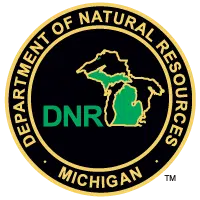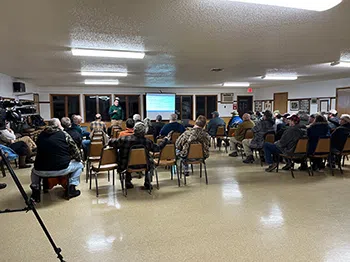Public Health Delta & Menominee Counties (PHDM) continues to work with Billerud Paper Mill, Michigan Department of Health and Human Services, National Institute for Occupational Safety and Health (NIOSH), and Centers for Disease Control and Prevention to investigate an outbreak of blastomycosis, a fungal infection, associated with the Escanaba Billerud Paper Mill.
To date, there have been 21 confirmed cases of blastomycosis identified. A confirmed case is a person with symptoms of blastomycosis and where the fungus has either been grown (culture) or seen by microscope in a test specimen. In addition to the 21 confirmed cases, 76 people have been classified as probable cases. A probable case is a person with symptoms of blastomycosis and who has a positive antigen or antibody test. Twelve out of the 97 total cases have been hospitalized. All 97 of the cases are either employees, contractors or visitors of the Billerud Paper Mill in Escanaba.
Unfortunately, there has been one death associated with this outbreak. A contractor who worked at the mill passed away recently due to blastomycosis.
“We were saddened to hear this news. Our heartfelt sympathies and prayers go out to the family, friends and co-workers who have lost their loved one,” said Michael Snyder, Health Officer at PHDM.
“Everyone at Billerud is deeply saddened by this news,” said Brian Peterson, Billerud Operations Vice President for the Escanaba Mill. “Anyone who works at our facility is part of our team, and we are keeping this individual, their family, coworkers and friends in our thoughts and close to our hearts.”
On Thursday, April 13, 2023 Billerud announced the temporary idling of the Escanaba Paper Mill to allow for additional cleaning of the facility based on recommendations from NIOSH. PHDM supports this action by Billerud.
Blastomycosis is a disease associated with a fungus that grows in moist soil and decomposing matter such as wood and leaves. People can get blastomycosis infection by breathing in fungal spores from the air. Blastomycosis does not spread from person to person or between animals and people.
Those who do get sick can develop symptoms such as cough (sometimes with blood), fever, chest pain, difficulty breathing, night sweats, fatigue, weight loss, muscle aches, and joint pain. Any persons experiencing these symptoms should contact their healthcare provider and discuss whether testing for blastomycosis is recommended. Blastomycosis is treatable with antifungal medicines, but it is important to get diagnosed early. Most people with blastomycosis will need treatment with prescription antifungal medication. Depending on the severity of the infection and the person’s immune status, the course of treatment can range from six months to one year.
























Comments